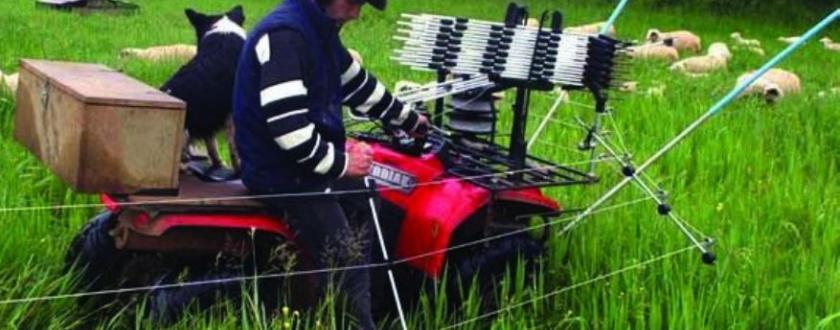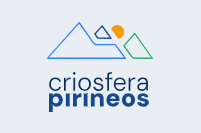AGRIVALEUR. Adapting agricultural practices in the Central Pyrenees to climate change
Description of the case study
The AGRIVALEUR project brings in a broader strategy implemented in the French Central Pyrenees for the development of new sustainable farming and livestock systems. It proposes the return of sheep to cereal farms to develop a more efficient use of natural resources, generate a reduction in the negative impacts of these activities and encourage and diversify the primary sector in a deprived rural area.
The Commision Ovine des Pyrènèes Centrales (COPYC) has for years been developing a network of farmers and livestock farmers who test and launch effective farming and livestock production models that facilitate a reduction in their environmental impact. Over recent years, a new Groupement d'intérét economique et environnementale (Economic and Environmental Interest Group, GIEE) has provided technical support to the farmers and livestock farmers involved, with a focus on analysing the economic viability of the new proposed models and on disseminating the results among members of the network.
The main objectives of the AGRIVALEUR project are:
- Efficient and integrated management of the natural resources necessary for the farming and livestock sector using a territorial and landscape approach.
- Development of farming and livestock practices for soil conservation and water resource preservation (increasingly scarce).
- Implementation of a rotational grazing system which mitigates the effects of climate change which are linked to farming and livestock activity.
- Provision of technical support to the farmers and livestock farmers involved so that they know about and test new techniques.
- Increase the value added of the produce generated using these new sustainable techniques by communicating what goes into producing them to the consumer.
- Create a network of farmers and livestock farmers who are committed to sustainability and to climate change mitigation and adaptation.
The project is being implemented within the French Central Pyrenees (Occitanie), with specific actions on farms in upland areas (pastures) and on the peripheral lowlands (cereal plains) in the communes of Saint Puy and Saint Bertrand de Comminges.
The measures taken forward by the project are as follows:
- Adaptation of the sector by using sheep species which are better prepared for the Pyrenean environment, particularly for poorer quality pastures which are now more available owing to the effects of climate change.
- Fertilisation of cereal land using natural fertiliser obtained from transhumant sheep flocks involved in the project.
- Development of pilot agricultural practices which favour soil fertility and reduce the use of chemicals.
- Mitigation of the effects of climate change by offsetting greenhouse gas emissions via a rotational grazing system.
- Reduction of the impact of parasitic populations (increasingly more resistant owing to a decrease in climate-induced frosts) using adapted livestock practices.
- Development of tests for these new adaptation practices, led by farmers and livestock farmers, and pooling of the environmental benefits and economic viability among both groups.
- Strengthening the value added of produce from the farms involved via partnership with an organic meat certification body and an information campaign about the environmental benefits and services behind these farming and livestock products.
- Project to monitor the effects of new transhumance methods involving 10 livestock farmers from the Pyrénées Ariégeoises Regional Natural Park (a shared action with its Plan Climat Energíe), which will generate documentation and a dedicated website (launch in 2019).
- Meeting of the farmers and livestock farmers involved to exchange experiences (February 2018 in Charlas, Haute Garonne, Occitanie).
Preparation of a good practice guide called Ovins & grandes cultures. Une complémentarité gagnant - gagnant which compiles all the experiences from the project.
Case mainly developed and implemented via objectives from other non-adaptation policies, though with significant consideration for climate change adaptation aspects.
Commission Ovine des Pyrénées Centrales (COPYC), Plateforme Agro-écologie, Paul Sabatier University, Maison du Pastoralisme des Hautes-Pyrénées, Chambre Agriculture du Gers, Biocoop, five local farmers and four local livestock farmers, EPLEFPA Pyrénées Comminges, CFPPA Ariège Comminges.
Additional Information
The project is promoted by the Commission Ovine des Pyrénées Centrales (COPYC), which in turn brings together a set of stakeholders from the farming and livestock sector in the French Central Pyrenees. Some of these bodies are: Plateforme Agro-écologie, Paul Sabatier University, Maison du Pastoralisme des Hautes-Pyrénées, Chambre Agriculture du Gers, Biocoop, five local farmers and four local livestock farmers, EPLEFPA Pyrénées Comminges, CFPPA Ariège Comminges.
Success: an innovation project with direct support from farmers and livestock farmers from the outset; continuity of public funding through successive GIEE; recent appointment of the COPYC by regional administrations as a recognised authority, facilitating access to new public funds; research project in collaboration with Pyrénées Ariégeoises Regional Natural Park in 2019.
Limiting: complications in reaching agreement among farmers and livestock farmers regarding group fertilisation and grazing practices; attracting young livestock farmers who want to be transhumant (landless); communicating the benefits of produce from these type of agriculture and livestock operations to consumers and the general population, in terms of the climate change adaptation benefits of these compared with intensive or traditional extensive practices.
This project initially had no funding (developed directly by COPYC with its own funds). In 2015 the project received funding from DRAAF Occitanie to launch a GIEE (Pasto'PYC). Between 2019 and 2021 it was funded by GIEE Agrivaleur, receiving €50,000 over 2 years (€35,000 from public funds) alongside a communication project with a budget of €15,000.
Financial support from EAFRD-CAP EU funds for agricultural innovation and regional funding of the successive GIEE implemented, managed through DRAAF Occitanie.
2010-2021 (11 years - in progress)
Reference information
PYRENEAN CLIMATE CHANGE OBSERVATORY
Avenida Nuestra Señora de la Victoria, 8
22.700 - Jaca
Huesca - España
+34 974 36 31 00
info_opcc@ctp.org





